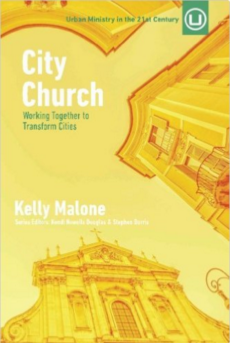In the world’s cities, the church must not only give people hope for eternal life. We must also help them realize their most basic hopes for physical, psychological, and spiritual well-being in the present world.
An individual Christ-follower can feed a hungry child, and a single congregation can provide food for the hungry families in their neighborhood. But it will take all God’s people working together to stamp out the problem of hunger in a city. And hunger is only one small piece of the puzzle of human suffering that plagues our world’s cities. The Christian community, moved by Christ’s compassion, can bring lasting change to a city. The world’s cities are not only large concentrations of people. Cities form nuclei through which people, money, materials, information, and ideas flow to energize our globalized world. A businessman in a village in India can sit in a coffee shop reading the Wall Street Journal online before making his investments in the London and Tokyo markets. This is only possible because of the kind of interchange taking place between cities like New York, Paris, Delhi, Nairobi, and Sao Paulo. The results of globalization ripple out from these great hubs to engulf the smaller cities, villages, and rural areas of the surrounding hinterlands.
